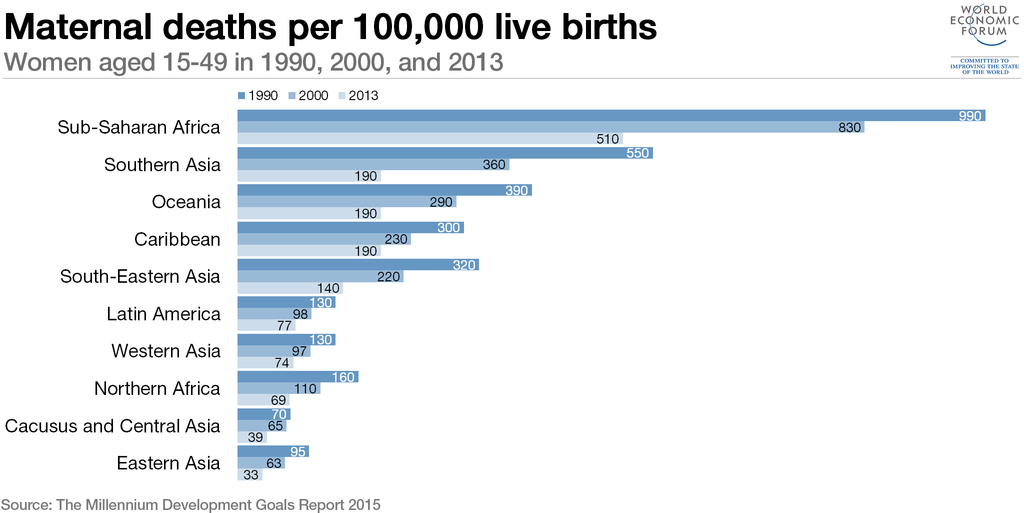How much has maternal health improved?

This is part of a series on the Millennium Development Goals (MDGs). In the run-up to a UN summit in New York on 25 September, we look at how the world has changed over the past quarter of a century through the prism of the original development goals set in 2000.
Improving maternal health was the fifth of the eight MDGs. The target was to cut maternal mortality by three-quarters from 1990 levels by 2015. While much progress has been made, the rate has been cut by just 45%.
Maternal deaths are concentrated in Southern Asia and sub-Saharan Africa, which account for 86% of the total. There are wide variations in the data with the mortality rate for developing nations 14 times higher than that for developed countries.
One reason the goal has been missed has been a lack of doctors and nurses. The proportion of deliveries attended by a professional has risen from 59% to 71%, but a quarter of mothers still get no professional help and in sub-Saharan Africa and Southern Asia the ratio is closer to a half.
It’s a similar story when it comes to antenatal care. The World Health Organisation recommends at least four antenatal visits during pregnancy but estimates for 2014 suggest that only half of women get that degree of care.
Author: Mark Jones is Commissioning Editor for the World Economic Forum
Image: An Afghan woman holds her newborn twins at the Razai Foundation Maternity Hospital in Herat province November 30, 2011. REUTERS/Mohammad Shoib
Don't miss any update on this topic
Create a free account and access your personalized content collection with our latest publications and analyses.
License and Republishing
World Economic Forum articles may be republished in accordance with the Creative Commons Attribution-NonCommercial-NoDerivatives 4.0 International Public License, and in accordance with our Terms of Use.
The views expressed in this article are those of the author alone and not the World Economic Forum.
Forum Stories newsletter
Bringing you weekly curated insights and analysis on the global issues that matter.
